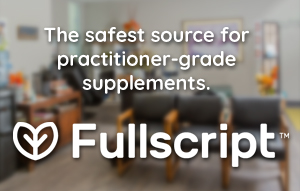
Stress has become a constant companion for many, affecting not just our mental health but also our physical and emotional well-being. While traditional stress relief methods often focus on symptom management, holistic approaches to anxiety aim to address the root causes by considering the interconnectedness of the mind, body, and spirit. From mindfulness practices and breathing exercises to dietary changes and aromatherapy, these strategies empower individuals to take control of their stress in a sustainable and personalized way. This blog explores a variety of holistic tools and techniques for anxiety that can help you build resilience, restore balance, and lead a more harmonious life.
Anxiety Isn’t Just in Your Head
Anxiety and depression are the most cited mental health issues in the US and are reported by one-third of the population. You are not alone in feeling the rise of anxiety around you. There are acute reactions of anxiety, such as panic and chronic stress. A cascade of chemicals comes with the stress response, but it should fade away after the stressor is managed. Ongoing stress means more chemical cascades that trickle down to many organ systems, including the brain. It is not just in your head.
Herbal Remedies for Anxiety
Botanicals for anxiety like ashwagandha, kava, and saffron can be very helpful. Lavender, valerian root, lemon balm, chamomile, or passiflora are helpful for some. Some are easy to integrate, such as picking up passiflora tea at your local coffee shop or smelling your pot of lavender while brushing your hair. Herbal remedies for anxiety are unique to the person, so reach out to the naturopathic doctor near you for a more individual treatment plan.
How the Gut Microbiome Plays a Role in Anxiety
Microbial influence over mood is a big area of research, and we are finding the connections of missing microbial families or dysbiosis and disease tendency anxiety, depression, obesity, OCD, PTSD, and gastrointestinal problems like Irritable Bowel Syndrome (IBS). The gut bacteria matters. Both diversity and balance matter. Each small family of gut microbes relies on small amounts of a certain fiber to do their job. We don’t need much; a tablespoonful of fiber is enough to thrive! My favorite diet to help our gut microbiota is a variety of heirloom beans.
H4: What Causes Anxiety?
While we can’t remove some causes of stress and anxiety, we can reduce some stressors, and we can prepare for stressors. Some aspects of life that bring anxiety are things we have no control over, such as disasters, injustices, inflation, conflict, or even trauma recovery. They will always be in the background. Other aspects are our own way of perceiving or understanding ourselves and what is happening around us, as well as our daily habits. They can be concerned about natural sunscreen or vitamins for thinning hair. Those are very much parts of our lives. We can use those to build self-improvement, discovery, and tools for managing stress and anxiety.
MTHFR Gene Mutation
The nervous system is primarily made up of two complementary paths of the sympathetic and parasympathetic systems. The sympathetic is known for massive action, lifesaving, or fight and flight. Meanwhile, the parasympathetic system counterbalances the sympathetic with rest, digestion, and repair actions. Some patients have an increased challenge in balancing out these two parts of the nervous system, especially if they have the MTHFR gene mutation. The sympathetic system, once trained, is ready to be activated again quickly. It takes regular activation or regular stimulation to keep the parasympathetic effects in place. Vagal nerve stimulation tools can be helpful in regulating these systems, as can the benefits of volunteering.
Alzheimer’s and Anxiety
An Alzheimer’s study in Brain in May 2023 showed that stress, which increases corticotropin-releasing factor, will in turn contribute to the amyloid beta protein increase found in Alzheimer’s dementia. The protein amyloid beta rose significantly in the female mouse within 2 hours and stayed elevated, while the protein in male mice did not change overall. In other words, stress management is an important preventative step to protect women who are at an increased risk of Alzheimer’s disease. Stress management is prevention medicine, as well as aging gracefully.
Holistic Tools for Anxiety
Anxiety can be life-altering. It can stop life in its tracks. Likewise, long-term anxiety management tools can be life-altering and lifesaving and help find the balance most people desire in their day-to-day lives. We know stress is coming, but being more prepared can help lessen the impact it has on our nervous system. Understanding what is going on for you as an individual and learning your tools can make all the difference in empowering you to find your answers. As mentioned above, regular parasympathetic stimulation is your key to success.
Relaxation Through Movement and Mindfulness
Breathing exercises come in many different styles. Simply breathing in for a count of four and out for a count of eight can help convert to a calmer or parasympathetic response. High-intensity exercise is a great choice for some, or yoga! Peaceful Piggy Yoga is one of my favorite books for kids, and I used this a lot to help with focus as a lego team leader. Tai Chi, meditation, and mindfulness are all well supported for parasympathetic action in the literature. Hobbies like sewing and cooking create that sense of well-being. What are your hobbies? Take time for them!
Supplements and Anxiety
Supplements for anxiety such as magnesium, amino acids, theanine, and sometimes probiotics can be supportive. Each person is an individual. They have a unique life story and unique genetics. Some genetics stay stressed for 30 minutes, whereas others for four hours over the same scenario. Biochemical components contribute to how a person responds to stressors and to treatments. Many nutrient deficiencies can be very difficult to diagnose but there are many research relationships made between magnesium deficiency and OCD (Obsessive Compulsive Disorder), PTSD (Post Traumatic Stress Disorder), as well as depression and anxiety. Iron or vitamin B deficiency can contribute to imbalance for some, while balancing neurotransmitters such as serotonin can help others.

Find a Naturopathic Doctor Near You
We have scratched the surface of parasympathetic tools here, but there are many more. What are yours? Do you need to explore some new ones? We specialize in this sort of thing, so it is not a new idea. At Journey of Health Medical Clinic, we are dedicated to finding the right integrative solutions for each patient. Look no further for a naturopathic doctor near you.



Speak Your Mind